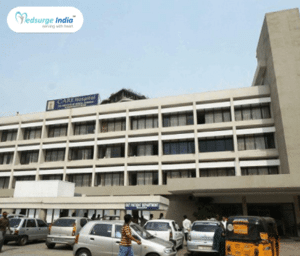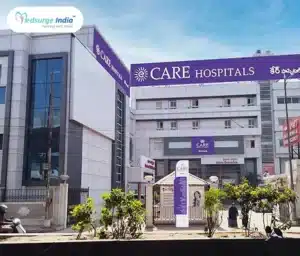Oral Cancer Surgery Cost in India
Unlock Exclusive Discount : Your Gateway to Premium Healthcare with Medsurge India Health Value Card.

Unlock Exclusive Discount : Your Gateway to Premium Healthcare with Medsurge India Health Value Card.


Oral cancer is an uncontrolled growth of abnormal cells affecting areas like the lips, tongue, gums, cheeks, or the roof and floor of the mouth. It often begins as a sore or growth that doesn’t heal. Common symptoms include persistent sores, difficulty swallowing, red or white patches, and a lump in the mouth.
If oral cancer is detected early, it can be treated with surgery. The surgery involves removing the tumor along with some surrounding healthy tissues and nearby lymph nodes to prevent the cancer from spreading. It may be combined with radiation or chemotherapy, depending on the stage, for better outcomes. The goal of the surgery is to eliminate cancer while preserving functions like swallowing and speaking.
If you are seeking affordable oral cancer surgery, India is a preferred destination for both Indian and international patients for receiving advanced medical care. The country is home to highly-skilled and experienced head and neck surgeons practicing at renowned internationally accredited hospitals.
Major types of oral cancer surgeries are:
Before the treatment, the doctor will perform some diagnostic tests to check the tumor’s size and location and assess the overall organ function. These tests include MRI, CT, and PET scans, blood tests, and a biopsy to confirm cancer.
These tests help the doctor to understand the extent of the disease and plan a proper treatment.
Recovery varies depending on the type of procedure performed. Patients are initially monitored in the hospital for 1-2 days. They may feel swelling and discomfort, which gradually decrease over several weeks. Depending on the extent of the surgery, they may also need speech therapy, physical therapy, or dietary counseling. Regular follow-ups are necessary to monitor healing and prevent any complications.
The average oral cancer surgery cost in India ranges from $1,500 to $12,000. However, the exact cost may vary based on several factors.
With state-of-the-art hospitals and experienced head and neck surgeons, India provides high-quality oral cancer surgery at affordable costs, attracting patients from India and abroad.
Surgery can be combined with radiation or chemotherapy, depending on the stage of the cancer. This multimodal approach helps reduce recurrence risk and improve long-term treatment success. The average cost of these therapies in India is mentioned below:
| Treatment | Approx Cost in USD |
| Surgery | $3500 to $8000 |
| Chemotherapy | $900 to $1250 |
| Radiation Surgery | $700 to $3600 |
Oral cancer surgery cost in India is highly affordable as compared to other Western nations, such as the UK and the US. This is the major reason patients from all over the world prefer India for medical treatment. The table below highlights this comparison.
| Country | Approx. Surgery Cost |
| India | $1200 to $9000 |
| USA | $45,000 to $1,40,000+ |
| UK | $90,000 to $2,50,000+ |
| Germany | $80,000 to $200,000+ |
| UAE | $60,000 to $150,000+ |
| City | Approx. Cost |
| Delhi | $1,500 to $9,000 |
| Mumbai | $1,300 to $8,000 |
| Chennai | $1,500 to $9,000 |
| Bangalore | $1,400 to $8,000 |
Note: Actual costs may vary depending on the hospital, procedure type, and individual treatment plan.
Several factors that may affect the final cost are:
India differs from other countries in several ways:
Know More: Best Oncologists In India
If you are looking for cost-effective oral cancer treatment in India, Medsurge India will guide you in several ways, including:
Whether you’re from India or abroad, we ensure a seamless, stress-free, and affordable journey.
With careful planning and the right guidance, patients can optimize their care while reducing overall expenses. Through our Health Value Card, patients can enjoy exclusive benefits, special offers, priority care, and dedicated support services, ensuring a seamless and budget-friendly treatment experience.
| Estimate Type | Estimated Cost (USD) |
|---|---|
| Total Package Estimate | USD 1,500 – USD 12,000* |
*Final cost depends on hospital, patient condition, and additional procedures/devices if required. Share your reports to get an accurate quote.
Estimated cost range in India: USD 1,500 – USD 12,000*
*For an accurate quote and hospital options, share your reports and preferred city/hospital.
The average oral cancer surgery cost in India varies according to the cancer stage and extent, complexity of the procedure, the hospital location, duration of stay, diagnostic tests, post-treatment care, etc.
The success rate of oral cancer surgery in India is over 90% when detected at an early stage. With advanced surgical techniques and a multidisciplinary approach, top hospitals in India offer better survival outcomes.
Yes, you can, but initially, your diet may include soft and liquid foods. After some time, when your mouth heals, you can gradually progress to a normal diet.
Most patients stay in the hospital for 1-2 days, depending on the complexity of the surgery.

Surgical Oncologist
Senior Consultant
12+ Years
BLK Max Super Speciality Hospital, New Delhi
View Doctor
Medical Oncologist
Associate Consultant
10+ years
Meitra Hospital, Calicut, Kerala
View Doctor
Radiation Oncologist
Senior Consultant
10+ years
Apollo Proton Cancer Centre, Chennai
View Doctor
Surgical Oncologist
Senior Consultant
8+ years
Meitra Hospital, Calicut, Kerala
View Doctor

Medical Oncologist
Consultant
15+ years
Care Hospitals HITEC City
View Doctor
Surgical Oncologist
Sr. Consultant & Associate Clinical Director
20+ years
Care Hospitals HITEC City
View Doctor
Surgical Oncologist
Senior Consultant
13+ years
Care Hospitals HITEC City
View Doctor
Surgical Oncologist
Senior Consultant & Head of the Department
22+ years
Care Hospitals HITEC City
View Doctor
Surgical Oncologist
Senior Director
15+ years
Fortis Hospital, Vasant Kunj, Delhi
View Doctor









By using our site, you agree to our Terms and Conditions, Privacy Policy and Refund Policy. Medsurge India provides reliable healthcare information and treatment options to support informed decision-making. Our content is designed to support and complement the guidance of your treating doctor, helping you feel informed and confident throughout your healthcare journey. We also Accept International Payments.

Copyright © 2025 NSM ONLINE SOLUTIONS PRIVATE LIMITED. All rights reserved.